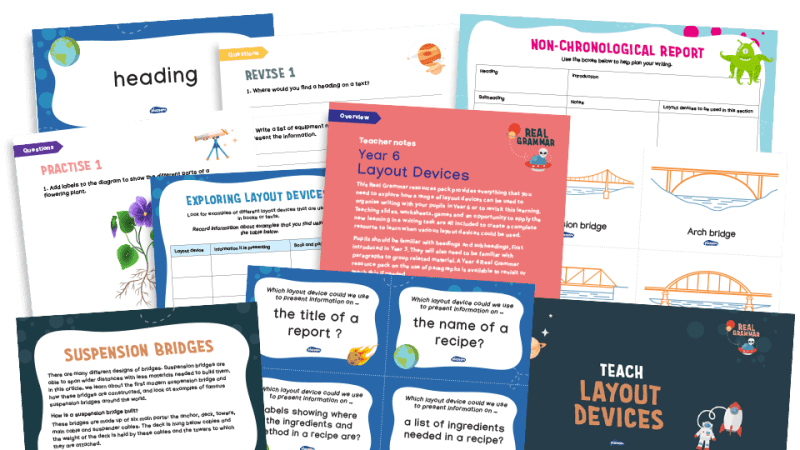Blaming Failures in KS3 English Progression on Flawed KS2 Data is Ignoring the Real Problem

There is no reason why we should expect students to arrive at secondary school GCSE ready, says Lindsey Till…

- by Lindsey Till

The summer term is always the time of year when schools begin to take stock and assess just how much progress has been made across all year groups since September, endeavouring to fine tune the curriculum for next year.
As the Head of the English Department at an inner city secondary school, I would often be looking at attainment data at this point and be left wondering what was going wrong.
Why were our students languishing in the same progress bands in which they entered at KS2? Why were groups of students failing to make the required progress?
After all, we teach hard, we mark hard, we worry a lot.
The answer to this question has been elusive for many years, leading bewildered teachers within secondary schools, who desperately want to avoid the ‘wasted years’ that Ofsted recognises, to wonder if the KS2 data was flawed in some way.
In a short survey I conducted of secondary teachers across all subjects, a staggering 90% of respondents felt that students were extensively coached in Year 6, leading to an inaccurate picture of their true abilities.
Furthermore, a shocking 85% believed that students were perhaps ‘helped’ during the tests, leading to flawed data. This would explain the failure to make progress, right?
These students had been pawns in a game to meet primary school attainment expectations. Problem solved?
A new subject
In my previous role, I admit that I shared these concerns, which would account for slow progress in KS3. Yes, we understood the Year 7 dip, but our transition units were carefully designed to bridge this.
Surely there must be other factors at play? However, in my new role of English Consultant, across a Trust made up of both primary and secondary schools, these myths have quickly been debunked.
Observing primary teachers in action, and studying their curriculum content, I’ve realised that there is quite simply a huge chasm between the skills honed and developed to succeed in SATs, and those required for GCSE English.
Indeed, English is almost two different subjects in terms of the required skills at these different Key Stages, almost akin to the difference between solely learning the skills of wood work for seven years, then being expected to apply these skills to metal work upon starting secondary school – there are similarities between the two disciplines, but they are separate entities.
And this is where the true issue lies – certainly not within extensive coaching or ‘helping’ a little too much.
Different expectations
Through my privileged position of unfettered access to day-to-day teaching within primary schools – an option unavailable to most time-stretched secondary teachers – reasons why joined up teaching between the primary and secondary curriculum is crucial have quickly become apparent.
While the KS2 reading tests almost solely measure students’ ability to read for meaning, locate evidence and infer deeper meaning (which primary teachers work unbelievably hard to deliver), GCSE-style baseline tests, often employed by schools, require students to demonstrate a whole plethora of skills that have not yet been learned.
For example, the KS3 tests supplied by exam boards require students to demonstrate the ability to summarise and compare texts, analyse language and structural features and evaluate its success – skills all high in priority in GCSE English Language, but never studied before at KS2.
Is it any wonder that secondary teachers are left scratching their heads as to why our bright young prodigies are failing to at least match their prior attainment score?
The actual amount that students are expected to write independently also differs hugely; while the ‘SATs’ include those tricky three-mark questions that many children fail to even attempt, consisting of a whole eight lines of blank space for them to fill, we present our Year 7 students with at least three questions that offer a minimum of two entire pages for their response.
Goodness knows what these students must be feeling in terms of their own abilities and the expectations of secondary school. It must be akin to standing at the bottom of Mount Everest and being told to tackle it, having only ever been taught the basic rudiments of climbing.
A daunting task, which would only serve to alienate some young people from educational success.
Wasted understanding
Even more saddening is that complex skills that students have mastered, such as understanding the subjunctive mood and how to use a sophisticated range of punctuation marks (all required at Greater Depth) are virtually ignored at KS3, and so forgotten.
Just imagine how sophisticated the responses to our GCSE papers at Year 11 would be if we harnessed this knowledge and used it to our best advantage.
Yes, it can be a scary prospect for secondary teachers, who have seldom dallied in these areas (possibly since their A Levels or degree), but this prior knowledge is an untapped source of incredible promise.
It is clear that as secondary practitioners, we must visit primary schools and investigate what is being taught and expected in Year 6.
Sixty-one percent of the respondents for my survey confessed that they do not purposely link what they teach in Year 7 to the primary curriculum, and on further investigation, admitted that they had not had the opportunity or time to observe lessons at primary school nor to analyse their students’ prior work.
Nor had they ever had any training in regards to demands and expectations at primary level. It is imperative that we take action to close this gap in knowledge, and that schools provide opportunities and the necessary training to do so.
There is no reason why we should expect students to arrive at secondary school GCSE ready, and we are not serving ourselves or our young people well assuming this is the case.
Through recognising that there are many key skills that need to be delivered to new and open eyes, and many skills that students already possess that can be built upon, we can embark on an exciting and rewarding journey to GCSE success – the holy grail that we have been searching for within our classrooms.
5 ways to promote real progress
- If you feel the need to undertake baseline reading tests, consider what you will test and how you will test it. Is there any mileage in testing students in their ability to compare, analyse and summarise when they have never been asked to do this before? The simple answer will be that they can’t. Save yourself some marking time.
- Re-evaluate your KS3 reading curriculum. How much emphasis is placed upon those never before covered skills of linking to context and the analysis of methods and structure? How can you deliver these new skills in an exciting way?
- Re-evaluate your KS3 writing curriculum. Are you drawing on their prior knowledge of grammar, punctuation and spelling? Have a go at a range of SATs tests yourself to familiarise yourself with the demands. Acknowledgement of your students’ skills will go a long way to fuelling long term confidence.
- Acknowledge any training needs that you might have in terms of building on grammar skills from KS2 – the majority of teachers weren’t taught grammar at school and wouldn’t have covered this in a literature degree. There is no shame in developing your skills.
- Get out into primary schools when you can. A strong working relationship between primary and secondary practitioners will actively dissolve gaps and evade the ‘wasted years’.
Download our Year 7 English worksheets and Year 8 English worksheets.










